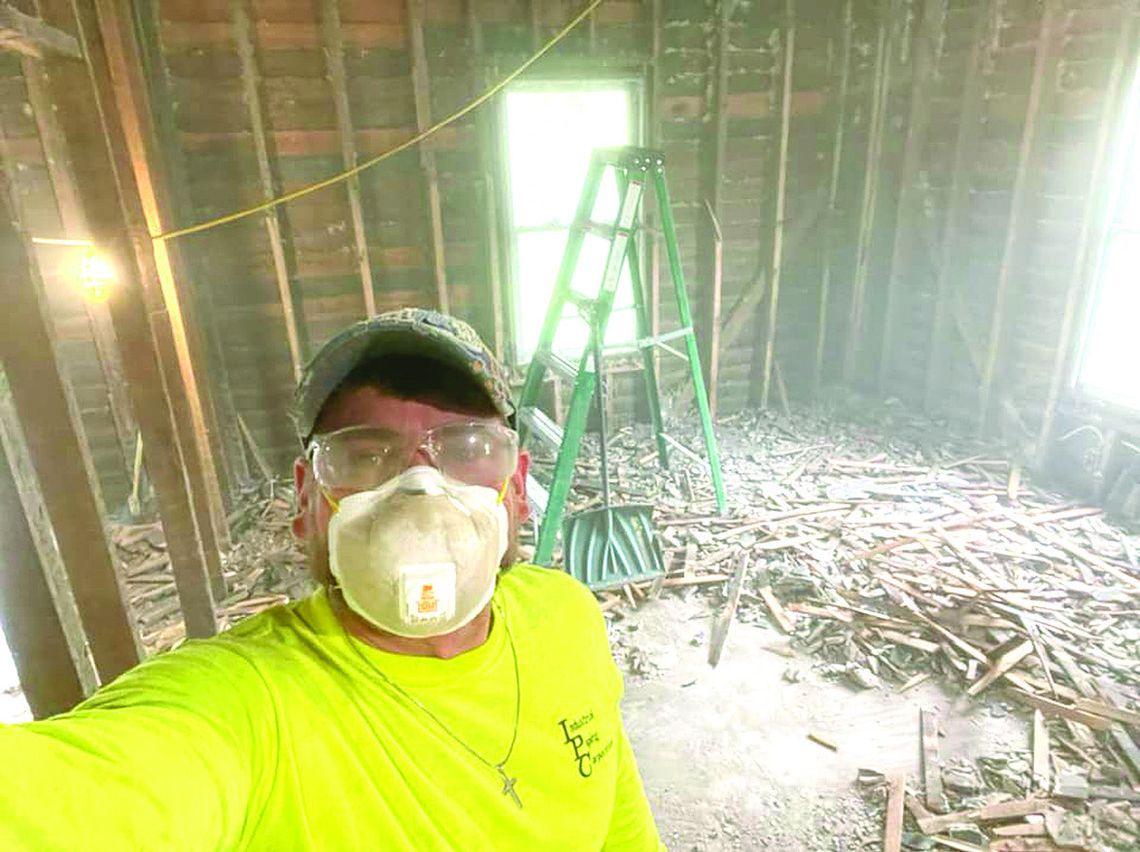The Lexington and Buena Vista city councils pledged both support and funding for the Hope House project at their respective meetings last Thursday.
Buena Vista, which is acting as the fiscal agent for the house, is pledging all $23,000 of the money it has received from the national lawsuit settlements and from the state’s Opioid Abatement Agency, which is distributing funds paid to the state to localities across the state. The continued from page 1 city is also submitting a grant application to the OAA for $210,231 for the project.
A house on Magnolia Avenue in Buena Vista has been donated to Recovery Rockbridge for the house, though it needs renovations in order to become a temporary residence with support services for recovering addicts. In addition to the grant, $325,000 has been donated toward the start-up of the project (including Buena Vista’s contribution). The house would be able to support up to six individuals at a time and would be staffed by a fulltime program manager and six part-time employees. The individuals in recovery would stay at the house for up to six months.
Rockbridge Community Health Foundation Executive Director Lori Turner spoke to the Lexington City Council about the project, telling Council that the RCHF was “committed to making up the differential” in costs for the renovations.
She had presented the project to the Rockbridge County Board of Supervisors at its meeting on April 24, at which point the Board pledged to support the project in the future, but didn’t commit any of the opioid settlement funds the county has received for the project. Lexington City Manager Jim Halasz recommended the city take a similar approach to the county and back the initiative, but not put any money toward it at this time.
“I believe it’s a great program. I think it will have great success, but I would like to see it get off the ground before we invest more money in it locally,” he said. “They’ve got more than enough to satisfy the requirements of the grant.”
Turner told Council that, while additional money would be helpful for the project at this time, if the city wanted to wait to officially commit funds to Hope House at a later date, that the project would continue as planned.
“Could we use some money toward it that the Community Foundation doesn’t have to raise? Yes,” she said. “Can we wait until later and allocate as Jim wants to do? Yes, we can do that, too. Either way, the Community Foundation is committed to making this happen.”
Lexington Vice Mayor Marilyn Alexander advocated for committing funding toward the project now instead of waiting for the house to be up and running. The Recovery Center plans to open the house in January.
“I have some real concerns about the message we’re sending if we don’t provide funding for the start-up or at least give them some assurances that we’ll be helping them in the future,” she said. “It’s difficult to plan beyond the start-up if you don’t know where all the money’s going to come from. You can start up if you have the funds for that, but what happens the next day for operating?”
Turner and Halasz both noted that there are three different pools of money from these settlements, each with different standards on how they can be allocated.
The largest pool is the payments coming directly to the cities and county from the settlements in three different lawsuits. Currently, Lexington has around $21,000 from those payments.
The second pool is distributions from the OAA, which need to be used to help fund a project supported by an OAA grant.
The third pool of money is the OAA’s Gold Standard Initiative, which provides localities with an additional 25 percent of their OAA distribution. Lexington currently has $8,663 from the OAA and would receive an additional $2,166 if they meet the requirements for the Gold Standard Initiative.
Halasz recommended, if Council wished to commit money to the project now, that it commit the OAA distribution. He also recommended allowing him to proceed with meeting the requirements for the Gold Standard to get that additional funding. Turner also noted that there are lawsuits against other companies that haven’t been settled yet, so there would be more money coming to the localities that can be used toward either Hope House or a future project.
In response to questions from Council about other projects that could potentially be funded with the money from these settlements, Halasz said that Hope House was the only one that was ready to apply for a grant at this time. He added that there had been conversations with other organizations about ideas for other projects, including potential projects within the Rockbridge Regional Jail to treat inmates suffering from opioid addiction and a short-term detainment facility for housing individuals suffering from an addiction when there was no place to treat them after they’d been taken into custody by law enforcement.
“They’re in the wings,” he said. “I would have to imagine that some of those will be forthcoming, but today, this is the only one that has been organized and is ready to go.”
Council member David Sigler made a motion to allocate the OAA funding for the Hope House and for Halasz to move forward with qualifying the city for the Gold Standard Initiative, the funding from that going toward the project as well.
“We have a lot of funds coming to us, we have an excellent program that we’re excited about, and to be honest, if tonight you had been asking for those dollars, I think we would have risen to the occasion and provided them,” he said. “I wouldn’t want to miss out on an opportunity, because there will be more money and we will be able to support other programs, and if this helps the city, that we now don’t have to find a new program [for these dollars], I would be happy allocating the money from the OAA to the Hope House to get those dollars spent.”
Council member Charles Aligood, who seconded the motion, noted that council could still provide additional funds from these settlements toward Hope House in the future if requested.
“We can still revisit this matter in three months or six months,” he said. “We’re not closing the matter with this distribution. It’s just that we want to distribute [these funds] and we don’t want to be behind the eight ball on a new project.”
The motion passed unanimously, and Turner thanked Council for the support of the project.
“That decision is helpful because [now] the Community Foundation money can be used for other things in relation to this project, so it’s a critical decision and I thank you for that,” she said.
For Buena Vista, Tyson Cooper made the motion to support the Hope House initiative and Vice Mayor Cheryl Hickman provided the second. That motion also passed unanimously in a 7-0 vote.
Editor’s note: Ed Smith provided some of the information for this story.
BOBBY SLAGLE, the man behind the Rockbridge Recovery organization, works on demolition phase of the Hope House project.





